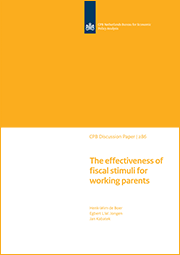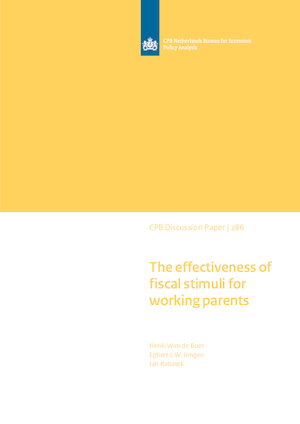The effectiveness of fiscal stimuli for working parents

To promote the labour participation of parents with young children, governments employ a number of fiscal instruments. Prominent examples are childcare subsidies and in-work benefits. However, which policy works best for employment is largely unknown. We study the relative effectiveness of fiscal stimuli for working parents in an empirical model of household labour supply and childcare use. We use a large and rich administrative dataset for the Netherlands. Large-scale reforms in childcare subsidies and in-work benefits in the data period benefit the identification of the parameters. We find that an in-work benefit for secondary earners that increases with income is the most cost-effective way of stimulating total hours worked of parents with young children. Childcare subsidies and a `flat' in-work benefit for secondary earners are somewhat less cost-effective. In-work benefits for both primary and secondary earners are much less cost-effective, since the former are rather unresponsive to financial incentives.
